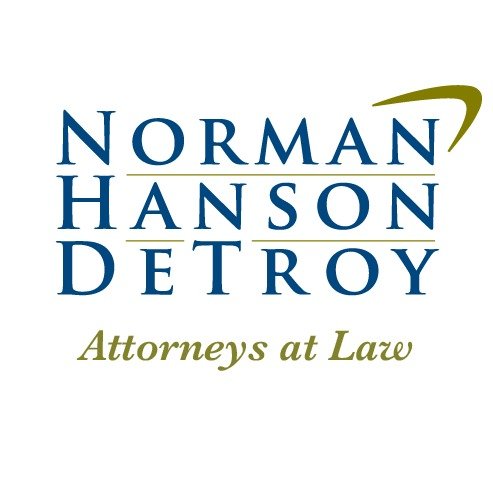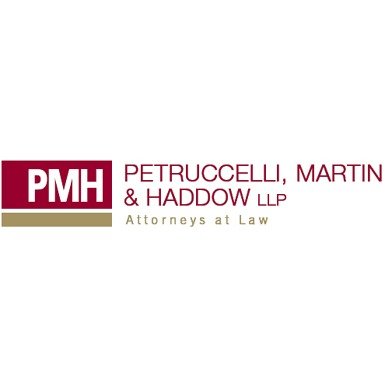Best Licensing Lawyers in Maine
Share your needs with us, get contacted by law firms.
Free. Takes 2 min.
Or refine your search by selecting a city:
List of the best lawyers in Maine, United States
United States Licensing Legal Questions answered by Lawyers
Browse our 1 legal question about Licensing in United States and read the lawyer answers, or ask your own questions for free.
- How do I legally protect my idea before selling or licensing it to a company?
- I have a makeup product idea that I want to sell or license, not the product itself. It is influenced by a product that was recently launched. Therefore, I want to sell/license to the company that launched said product. After some research, I contacted a patent attorney who explained that... Read more →
-
Lawyer answer by P.O OHIKHENA & Co
Good day,A patent will not be applicable since it's still an idea. You can go into an MOU(Memorandum of understanding) with the said company and also an NDA.You can contact me for my insight. Visit our profile and send us...
Read full answer
About Licensing Law in Maine, United States
Licensing law in Maine refers to the state and local regulations that govern who can legally engage in certain activities, offer specific professional services, or operate businesses that require oversight. Licensing ensures that individuals or businesses meet set standards for competency, public safety, and fair practices. Licenses in Maine can range from professional credentials, like those for doctors or engineers, to business operation permits for restaurants, contractors, or retailers. Compliance with licensing law is critical to avoid penalties and keep practices legal within the state.
Why You May Need a Lawyer
Many people encounter complex issues with licensing at some point. You may need a lawyer if you are denied a professional license, face disciplinary actions or license suspension, wish to appeal a licensing decision, or need guidance through the application process. Legal help is also important if you are accused of operating without the required license or need representation during a hearing. Lawyers experienced in licensing law can also assist with regulatory compliance, background checks, and record expungement related to licensing problems.
Local Laws Overview
State statutes, administrative rules, and local ordinances set the framework for licensing in Maine. The Maine Department of Professional and Financial Regulation oversees most occupational and professional licensing, while cities and towns may have additional requirements for certain businesses. Key aspects include compliance with application procedures, background checks, proof of education or training, and periodic renewals. In many fields, such as health care, trades, and real estate, licensing is tightly regulated to protect public interests. Penalties for noncompliance range from fines to criminal charges, or permanent disqualification for serious offenses.
Frequently Asked Questions
What types of activities require a license in Maine?
Many professions require a state-issued license, including attorneys, health care providers, contractors, electricians, barbers, and many others. Additionally, many business activities, such as selling alcohol, serving food, or operating daycare centers, require specific licenses or permits.
How do I apply for a professional license?
Applications are typically processed through the relevant state agency or regulatory board. Applicants must follow the agency's procedures, which often include submitting proof of education, passing examinations, and completing background checks.
What happens if I operate without the required license?
Operating without the necessary license can result in fines, orders to cease operations, and in some cases, criminal charges. It may also damage your ability to obtain a license in the future.
How can I check the status of my license application?
Most agencies provide online access to application status and current licenses. You may also contact the agency directly for updates or additional requirements.
Can I appeal if my license application is denied?
Yes, you may have the right to appeal. The appeal process varies depending on the type of license and the governing agency. You should review the denial notice carefully and consider legal assistance for appeals.
What are common reasons for license denial or revocation?
Common grounds include failure to meet qualification criteria, criminal convictions, violations of professional standards, providing false information, or failure to pay required fees.
Do licenses in Maine have to be renewed?
Yes, most professional and business licenses require renewal on a set schedule, such as annually or biennially. Renewal usually requires ongoing education or compliance with regulations.
Are license requirements different between cities and towns?
Yes, while state law sets many standards, local governments can impose additional requirements for businesses and certain activities. Always check both state and local regulations.
Can a criminal record prevent me from getting a license?
It depends on the nature of the conviction and the type of license sought. Some offenses may disqualify applicants, while others may be considered on a case-by-case basis.
What should I do if I receive a notice of a licensing violation?
Read the notice closely, comply with any deadlines, and consider consulting with a lawyer experienced in licensing law to review your options and protect your interests.
Additional Resources
- Maine Department of Professional and Financial Regulation - Responsible for many professional and occupational licenses - Maine Secretary of State, Bureau of Corporations, Elections and Commissions - Business registration and licensing - Local city and town halls - For local business permits and licenses - Maine State Bar Association - For lawyer referrals and legal information - Professional licensing boards, such as the Maine Board of Licensure in Medicine or the Real Estate Commission - Maine Attorney General’s Office - For consumer and legal complaints related to licensing
Next Steps
If you need legal assistance with licensing in Maine, start by reviewing the specific requirements and deadlines for your profession, occupation, or business activity. Gather all relevant documents, correspondence, and notices you have received. Consider consulting a lawyer with experience in Maine licensing law, who can provide advice, help with applications or appeals, and represent you in hearings. Always verify the lawyer’s credentials and ensure they are familiar with local and state licensing agencies. Stay proactive by keeping records up to date, renewing licenses as needed, and addressing any violations promptly to protect your ability to work or operate legally in Maine.
Lawzana helps you find the best lawyers and law firms in Maine through a curated and pre-screened list of qualified legal professionals. Our platform offers rankings and detailed profiles of attorneys and law firms, allowing you to compare based on practice areas, including Licensing, experience, and client feedback.
Each profile includes a description of the firm's areas of practice, client reviews, team members and partners, year of establishment, spoken languages, office locations, contact information, social media presence, and any published articles or resources. Most firms on our platform speak English and are experienced in both local and international legal matters.
Get a quote from top-rated law firms in Maine, United States — quickly, securely, and without unnecessary hassle.
Disclaimer:
The information provided on this page is for general informational purposes only and does not constitute legal advice. While we strive to ensure the accuracy and relevance of the content, legal information may change over time, and interpretations of the law can vary. You should always consult with a qualified legal professional for advice specific to your situation.
We disclaim all liability for actions taken or not taken based on the content of this page. If you believe any information is incorrect or outdated, please contact us, and we will review and update it where appropriate.
Browse licensing law firms by city in Maine
Refine your search by selecting a city.









